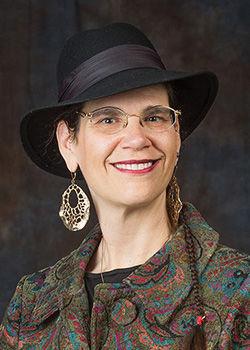One day while the grandchildren of the Rhizner rebbe, Rabbi Yisrael Friedman (d. 1858) were playing marbles, a controversy erupted between the five and seven year old, as to the difference between a Tzadik ( a righteous master), a Tzaddik Hador (a Tzadik of the generation), and a Tzadik Yesod Olam (a Tzadik that is the foundation of the world). The seven year old said, "a Tzadik is one who when they leave the world, they are as holy as they were when they came into it, a Tzadik Hador is the one who elevates everyone he meets, and a Tzadik Yesod Olam is the one who elevates all those that live in that same generation.
To this response, his five-year-old brother said: "What is the purpose of exiting the world the way you came into it? What is the meaning of your life if it hasn't changed you? Therefore a Tzadik is the one who elevates everyone he meets, and a Tzadik Hador is the one who elevates all those that live in that same generation and a Tzadik Yesod Olam is the one who elevates the world since the time of creation. And that's who I am!"
At first, this latter response seems to be outrageously haughty and presumptuous for anyone, let alone a five year old, but with a second glance there is great wisdom that he has brought to challenge us; wisdom that echoes that of the Alexander rebbe (Rabbi Hanokh Henikh Levin) over 150 years ago. The rebbe re-interprets a pasuk (verse) from our parasha. Moshe Rabeinu, as he sings his final song prior to the Children of Israel entering the Promised Land, calls upon the "God of faith that does no wrong"/"El Emunah v'aiyn avel" (D'varim/ Deuteronomy 32, 4). The primary understanding of this phrase - "El Emunah" - the God of faith - is the God that we believe in, the God in whom we have faith in is a God who bears no iniquity. But for the Alexander rebbe, this verse it is not speaking of the God who we believe in, but rather the God who believes in us. "El Emunah" - The God that has faith in us. My teacher Reb Shlomo Carlebach (1925 - 1994) would add, when sharing this teaching: "Imagine how much faith God has in us to create a world and then hand it over to us!"
It is with these ears that I hear the five year old saying: "And that's who I am!" In a post-Temple reality, when we have no high priest who enters the Holy of Holies, we all stand before God as a high priest or priestess. And it is with greatness that we are asked to do so. The Talmud teaches us that the service of Yom Kippur was solely dependent on the high priest - that if he could not fulfill the practices of the day, they were rendered not fit (literally not "kosher"). Imagine how much responsibility lay on his shoulders! This is the responsibility that now rests on ours!
This Shabbat, as standing between the Holy of Holies on Yom Kippur and our sukkah, we are invited to join Moshe and to sing to God. Moshe is our teacher in knowing that humility resides with greatness. He is the most humble of men on the one hand, yet the one who God speaks to face-to-face. His shortcomings walk hand in hand with his virtues and it is with this sense of integrity that he leads us through the desert, sometimes in greatness, sometimes in what may seem as a compromised face of leadership.
It is the totality of Moshe's being that enables him to transcend being verbally challenged to becoming a poet. When, a couple of weeks ago, he said to us: "you are all standing here today" was he not saying: the totality of who you are standing here'? The God that believes in us, versus the God that we believe in, is not blind to our shortcomings or challenges. The contrary is true - they are apparent to the Divine even in those moments that we ourselves are blinded to them. The God that believes in us seeks a true and honest encounter - similar to a relationship that ripens beyond the trappings of a first or second date.
Rebbe Meir Hagadol of Premishlan (1711 - 1773) says that there are three mitzvot that we dwell in as we are - garments, dirty shoes, compromised consciousness etc. - the Land of Israel, the Shabbat, and the Sukkah. To enter into the Holy of Holies we need to remove our cloths and immerse in the pure waters of the mikvah. But to enter into a sukkah we need nothing more than the courage to step inside. Where do we derive our strength to take that step? From where do we draw trust that enables us to stand as we are in God's temporary dwelling?
It is the Alexander rebbe on one side of the sukkah door and the grandson of the Rizhner rebbe on the other side of the sukkah door telling us: God created a world and handed it over to you, so that in return you can shape it and change it; a world that you can actualize and evolve. God is the God of faith - the God that believes in you. The God that we believe in is sufficient to draw us into the Holy of Holies, but it is the God that believes in us that invites us into His/Her divine chamber for seven days.
As we dwell in this Shabbat, may we bask in this Divine faith, and through dwelling in our sukkah, may we carry it into the year to come.
G'mar tov and Shabbat shalom.

